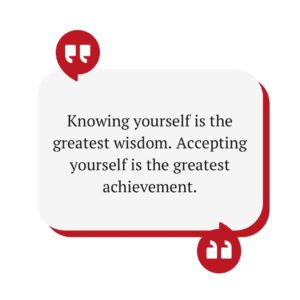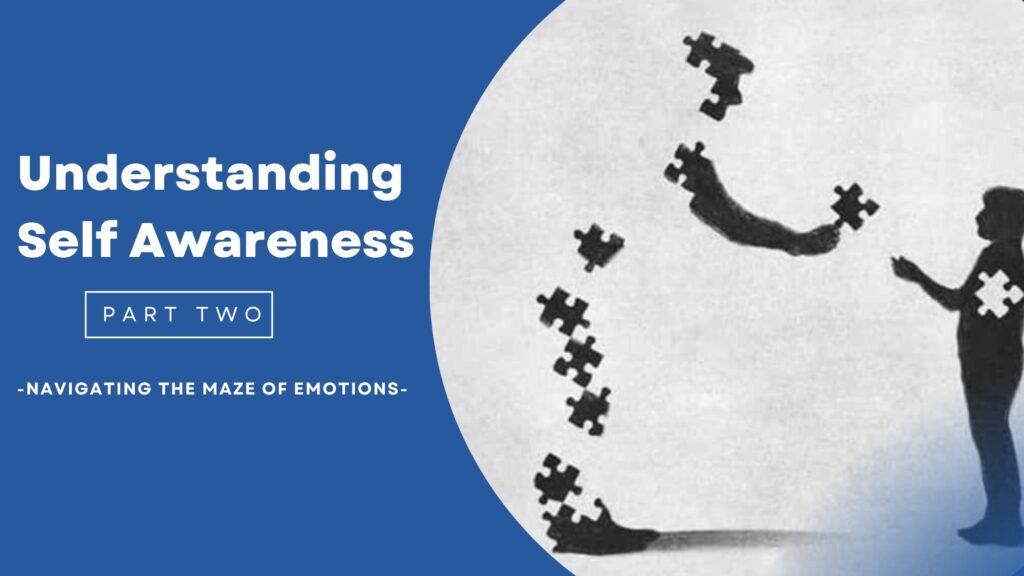Understanding the Essence of Self-Awareness (Part Two)
-Navigating the Maze of Emotions-
Developing self-awareness in this realm involves acknowledging, understanding, and accepting
our emotions without judgment. Emotions are the colorful threads that weave the intricate
tapestry of human experience. From the exhilarating highs of joy and love to the profound
depths of sadness and fear, our emotions shape the way we perceive and interact with the world
around us.
Yet, for many, navigating the complex terrain of emotions can be a daunting task. In this second
installment of our journey to self-awareness, we delve into the realm of emotional intelligence
and explore the transformative power of understanding and embracing our emotions.
Through mindfulness practices such as meditation and journaling, we can cultivate a heightened
sense of emotional intelligence. By becoming attuned to our emotional landscape, we can
respond to situations with greater clarity and empathy, fostering healthier relationships and
inner peace.

At its core, emotional intelligence encompasses the ability to recognize, understand, and manage
our own emotions, as well as the emotions of others. It involves being attuned to our inner
experiences, cultivating empathy, and effectively regulating our emotional responses. In essence,
emotional intelligence is the foundation upon which healthy relationships, effective
communication, and personal well-being are built.
Why is emotional intelligence so vital in the journey to self-awareness?
Our emotions influence our thoughts, behaviors, and decision-making processes, shaping the
way we perceive ourselves and the world around us. By developing emotional intelligence, we
gain insight into the underlying drivers of our behavior and can respond to situations with greater clarity and wisdom.
One of the fundamental principles of emotional intelligence is mindfulness – the practice of
being fully present and engaged in the present moment. Mindfulness allows us to observe our
thoughts and emotions without judgment, creating space for self-reflection and introspection.
Through mindfulness meditation, we can cultivate a deeper awareness of our emotional
landscape, learning to acknowledge and accept our feelings with compassion and non-reactivity.
In addition to mindfulness, journaling can be a powerful tool for exploring and processing our
emotions. By putting pen to paper, we give voice to our innermost thoughts and feelings, gaining
clarity and perspective in the process. Journaling allows us to track patterns in our emotions,
identify triggers, and develop healthier coping strategies for managing stress and adversity.
But emotional intelligence is not just about understanding our own emotions; it is also about
empathizing with others and fostering meaningful connections.

Empathy – the ability to understand and share the feelings of another, lies at the heart of
emotional intelligence. By practicing active listening, perspective-taking, and genuine
compassion, we can deepen our relationships and cultivate a sense of belonging and connection
with others.
Moreover, emotional intelligence empowers us to effectively regulate our emotional responses
in challenging situations. Instead of reacting impulsively or succumbing to overwhelming
emotions, we can pause, breathe, and choose a more mindful and intentional response. By
developing emotional resilience – the ability to bounce back from setbacks and adversity – we
cultivate inner strength and courage in the face of life’s inevitable ups and downs.
In conclusion, emotional intelligence is a cornerstone of self-awareness, enabling us to navigate
the maze of emotions with grace and wisdom. By cultivating mindfulness, empathy, and
emotional resilience, we deepen our understanding of ourselves and others, fostering greater harmony and well-being in our lives.
As we continue on this journey of self-awareness, let us embrace the transformative power of
emotional intelligence. In doing so, we unlock the full potential of our human experience and live
lives of greater meaning, purpose, and fulfillment.
